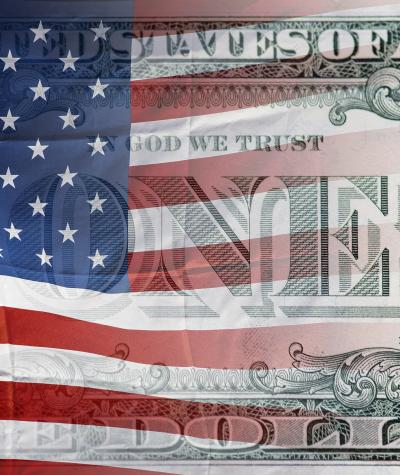A recent D.C. District Court decision held that the law required much more disclosure of donors than we’ve seen in recent years. But Federal Election Commission (FEC) inaction and dysfunction has apparently signaled to many groups that they can ignore the law.
Of the 17 groups that should have reported their donors by Monday’s disclosure deadline, only four named any contributors. Two of those groups reported contributions from other entities that don’t disclose their donors. The remaining 13 organizations, which collectively spent millions of dollars in September, are still keeping all of their funders a secret.
Under the statute and the court’s decision, groups making independent expenditures—which are ads that expressly advocate for or against the election of candidates—must disclose all donors who gave for “political purposes” and for the purpose of furthering any of the group’s independent expenditures.
But there are some grey areas. Only contributors who give to support a group’s political activities must be disclosed; donors who give for general support do not.
It falls to the FEC to clarify the distinction between reportable and non-reportable donations. The D.C. District Court gave the FEC 45 days to craft new rules that would do just that.
But the FEC didn’t develop new rules—it instead issued a press release restating the court’s decision and the statute.
As a result, almost all of the groups subject to disclosure are claiming that they received no reportable contributions. Even groups like Majority Forward, which spent over $12 million on independent expenditures during the reporting period, is claiming that no donors gave for political purposes, and that therefore no donors need to be reported.
Given that the FEC routinely deadlocks on enforcement matters, many groups are likely anticipating that the FEC isn’t going to second-guess their assertions that they received no reportable contributions.
But the FEC should take a closer look at Heritage Action for America. On August 8, Heritage Action officials stated publicly that the group would “raise” money “to back 12 candidates,” and then spent six figures supporting those same candidates. Given these public statements—which we haven’t seen from the other organizations—it is awfully hard for Heritage Action to legitimately claim that it received no contributions in support of its political spending.
CLC filed a complaint against Heritage Action on October 16. We’ll continue monitoring the activities of other organizations as well.
Here is CLC’s roundup of this week’s independent expenditure reports:
The FEC’s new guidance required that groups making independent expenditures on or after September 18 must report contributions received on or after August 4 on their October quarterly reports, which were due October 15.
CLC counted 17 groups that ran independent expenditures in the relevant period, September 18 through September 30.
- Four groups -- Unite Here Arizona, Working America, Working People Rising, and Mi Familia Vota -- reported some contributors.
- Unite Here Arizona and Working People Rising reported contributions in the form of transfers from other unions.
- Working America reported $79,500 in contributions, $69,500 of which came from a non-disclosing 501(c)(4), For Our Future Action Fund, and $10,000 of which came from a union.
- Mi Familia Vota reported that all of its contributions came from a non-disclosing 501(c)(4) called Arizona Wins (which was also running independent expenditures during the relevant period).
- Two groups—Case Action Fund and National Association of Home Builders—did not file reports before the deadline.
- Eleven groups claimed that they did not receive any reportable contributions.
- Three of those groups provided no explanation for why they didn’t disclose any contributors, but are apparently taking the position that the funds they used to pay for their independent expenditures do not fall within the scope of the disclosure laws: AFL-CIO,Environmental Defense Action Fund, and Arizona Wins.
- One group, Susan B. Anthony List, did list a contributor: itself. It disclosed that it used general treasury funds, which appears to be a version of claiming that it received no reportable contributions.
Seven other groups provided varying explanations for why they didn't think donors needed to be disclosed:
"Please note that the independent expenditures disclosed on this report were paid for from general treasury funds and, to the best of my knowledge, information, and belief at the time of filing, no reportable contributions were made for the purpose of furthering these expenditures."
"Pursuant to part (3) of the Commission's interim guidance for Form 5 filers filing this quarterly report (issued on October 4, 2018), there is no change in reporting requirements for disclosure of contributors to entities that made independent expenditures only before Sept. 18, 2018. The dissemination of the independent expenditures reported in this filing occurred prior to Sept. 18, 2018 and prior to the vacatur of the Commission's regulation at 11 CFR 109.10(e)(1)(vi). No donations were made to further the independent expenditures disclosed on this report, and therefore no contributors are identified on Line 6."
"HSLF is aware of the court decision and new FEC guidance related to Crew v. FEC. HSLF has not received any contributions earmarked for political purposes or intended to influence elections during the covered period and therefore has no receipts to report under the Crew v. FEC decision or related FEC guidance."
- Majority Forward, Patriot Majority, Taking Texas to the Top, and Texas Organizing Projectall provided an identical explanation:
"As a matter of policy, [Majority Forward/Patriot Majority/Taking Texas to the Top/Texas Organizing Project] does not accept funds earmarked for independent expenditure activity or for other political purposes in support or opposition to federal candidates."
